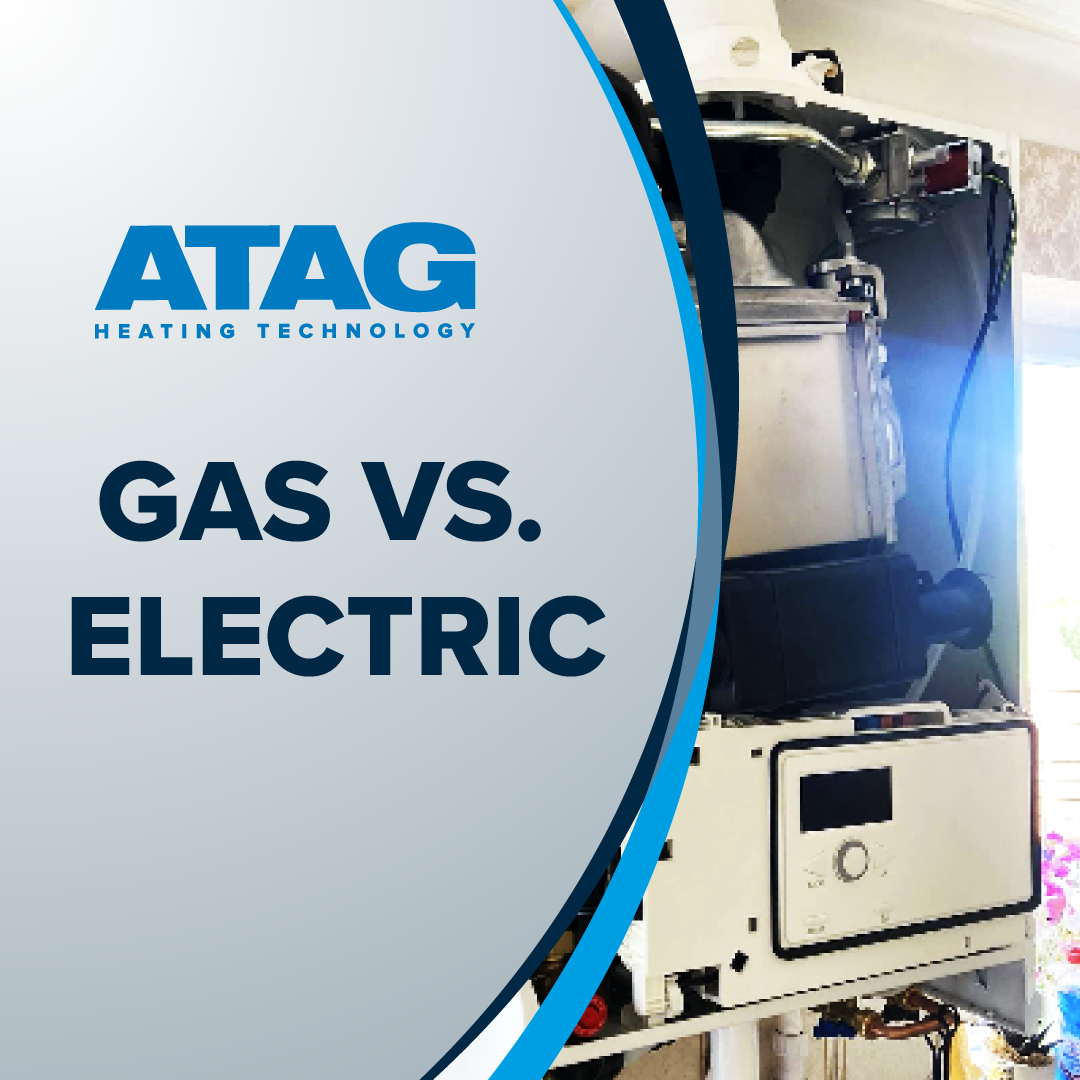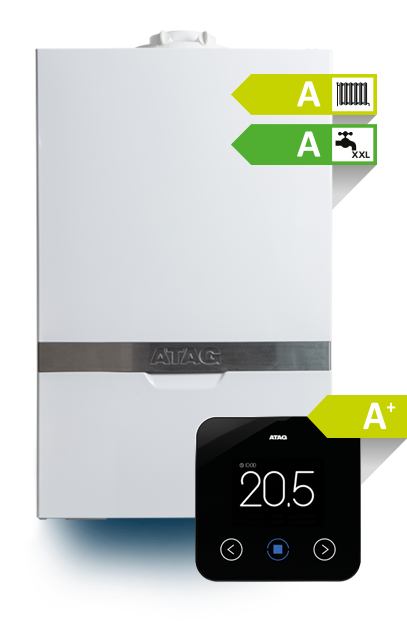
Whether you’re installing a new appliance, deciding whether to replace your current system or simply curious about the efficiency of your current solution, when it comes to heating your home or property, knowing the advantages of each option is imperative.
Both gas boilers and electric boilers come with their own benefits in terms of cost, energy efficiency, heating power, and more.
Read on to discover the fundamentals of how gas boilers and electric boilers work, and how they compare.
Gas boilers and electric boilers
Both gas boilers and electric boilers work to heat your hot water and your property. Whilst they perform the same task, we need to explore a few key differences. But before we delve into the different advantages of each, let’s look at how they fundamentally function.
How do gas boilers work?
Gas boilers: gas boilers utilise natural gas or LPG to generate heat for your heating and hot water systems. This is typically done via a continuous stream of natural gas which flows through either a pipe or a LPG bulk tank/LPG bottles that’s connected to your gas main. Before igniting, gas boilers carry out internal pre-safety checks. After this, the gas burner ignites allowing heat to transfer from the burnt gases to the heat exchanger.
The primary types of gas boilers are the combination boiler, system boiler, regular boiler (also known as heat-only, traditional, or conventional boiler) and, specific to ATAG, the Economiser combination boiler which is highly efficient, utilising the untapped residual heat left in waste flue gases.
Gas boilers like the combination or the Economiser are compact, as they do not require a storage tank or cylinder. Whilst the regular boiler and system boiler utilises more space as some of its components are housed externally. The System Boiler does require a cylinder Each gas boiler option is highly effective and the type of boiler that’s most applicable to you will depend on factors such as the modernity of your radiators, your water pressure and your hot water demands.
Discover everything you need to know about energy-efficient gas boilers here.
How do electric boilers work?
Electric boilers:
Electric boilers function similarly to gas boilers where they access their water from a mains water supply. The water in the boiler passes over a metal element, just like an electric shower, which is heated by electricity. As the water is heated by the metal element, it circulates through the central heating system, providing your property with heat and hot water.
As with gas boilers, there are a few different types of electric boilers and the one that’s most suitable for you will depend on the likes of water pressure and your hot water requirements.
Heating your home
Our ATAG gas boilers start on low flame for approximately 3 minutes before starting to ramp up. Electric boilers use a heating element which heats up instantly.
Electric boilers, in contrast, have a much lower flow rate than gas boilers, this refers to the rate of water that is sent to your taps upon request. As gas boilers can deliver heat and hot water quickly and efficiently, they can meet higher demands for heating.
Efficiency and environment
Typically, electric boilers are considered more efficient than gas boilers as they waste little energy and operate at around 99-100% efficiency. Whilst gas boilers operate at around 92% or above ERP efficiency, all new condensing gas boilers are also highly energy efficient. At ATAG Heating Technology, our boilers are one of the most efficient currently on the market. They can offer up to 98% efficiency when installed with a One Zone controller and Weather Compensation, which is almost the same as electric boilers.
Electric boilers are solar panel compatible and offer a low carbon footprint whereas gas boilers utilise fossil fuels. However, fossil fuels are often used to generate electricity for electric boilers.
Gas supplies, on the other hand, can produce heat and hot water at a faster rate than electric boilers. In addition to being a more reliable and consistent power source, modern condensing gas boilers have a wide range of maximum output ratings, are more capable of meeting higher demands for heating and water and can use untapped residual heat found in the waste flue gases to provide further heating, minimising waste, and maximising efficiency.
Cost: installation and running
The initial purchase of a boiler system is similar for both gas and electric units. However, gas boilers are generally more popular and widely available. With more options on the market, gas boilers can be cheaper to purchase than electric boilers.
Gas boilers have more working parts than electric boilers, so the installation process often takes more time – requiring the installation of a flue or condensing pipe, for example. Electric boilers are more compact and typically easier to install. Electric boilers have fewer moving parts and reducing the need for maintenance and annual servicing. However, it is the compact nature of electric boilers that means they have a lower heat capacity and may not be able to satisfy the heat and hot water demands of some properties – a task in which gas boilers excel.
Whilst electric boilers can utilise the power of solar panels which may offer you cost savings; electricity is currently much more expensive than natural gas. Natural gas is far cheaper than electricity when considering per unit of heat provided.
In terms of running costs and initial purchase, gas boilers are undoubtedly the more cost-effective option. Take our Economiser combi boiler, for example. The Economiser with weather compensation and One Zone, has lower running costs than most other boilers due to its efficiency and uses 98% of the energy it produces. This essentially means that 98% of the money you spend on energy is used.
Related read: 20 top tips to save money on gas and heating bills in 2022
Gas boilers vs. electric boilers: key takeaways
Electric boilers have the advantage of being more environmentally friendly and requiring less maintenance. Nevertheless, gas boilers are, overall, the best option for most homes. In addition to this, they’re the more cost-effective option as they’re cheaper to run and can easily be replaced when necessary. However, you are less likely to need to make this investment when partnering with us as we offer a considerable warranty.
Ultimately, the best option for you will be the one that is most suited to your needs in terms of your property and your budget. If you have high demands for heating and hot water, want a more affordable solution, are connected to the gas grid and can use LPG, a gas boiler is likely the best option for you.
At ATAG Heating Technology, we’re committed to providing you with the best and most applicable boiler solutions. We understand that heating and hot water are vital parts of day-to-day life, so ensuring you receive an efficient, high-quality solution is key.
Our boilers come with a standard warranty of 10 years which can be increased to 12 or 14 years. To learn more, find your local ATAG-selected installer here.
.png?width=250&height=76&name=ATAG%20Logo%20(72dpi%20RGB).png)
